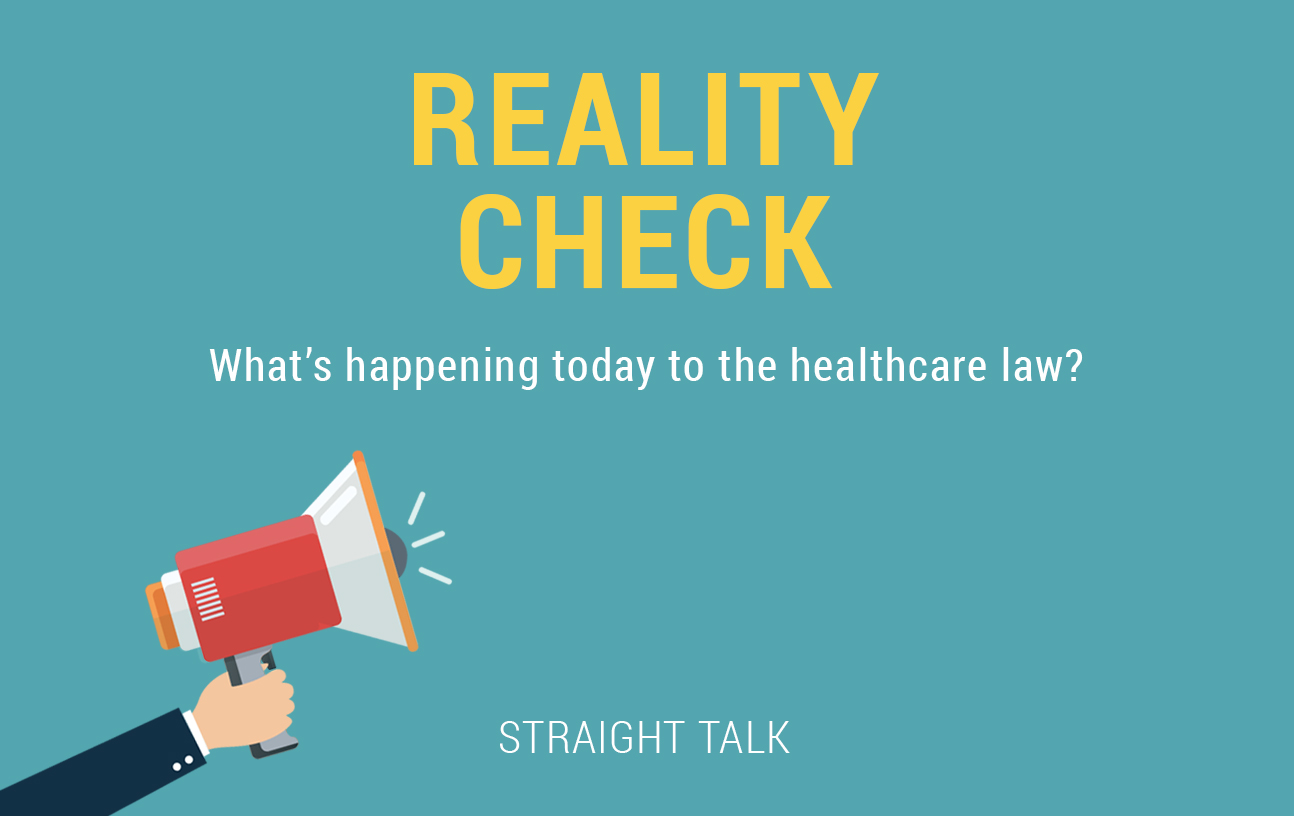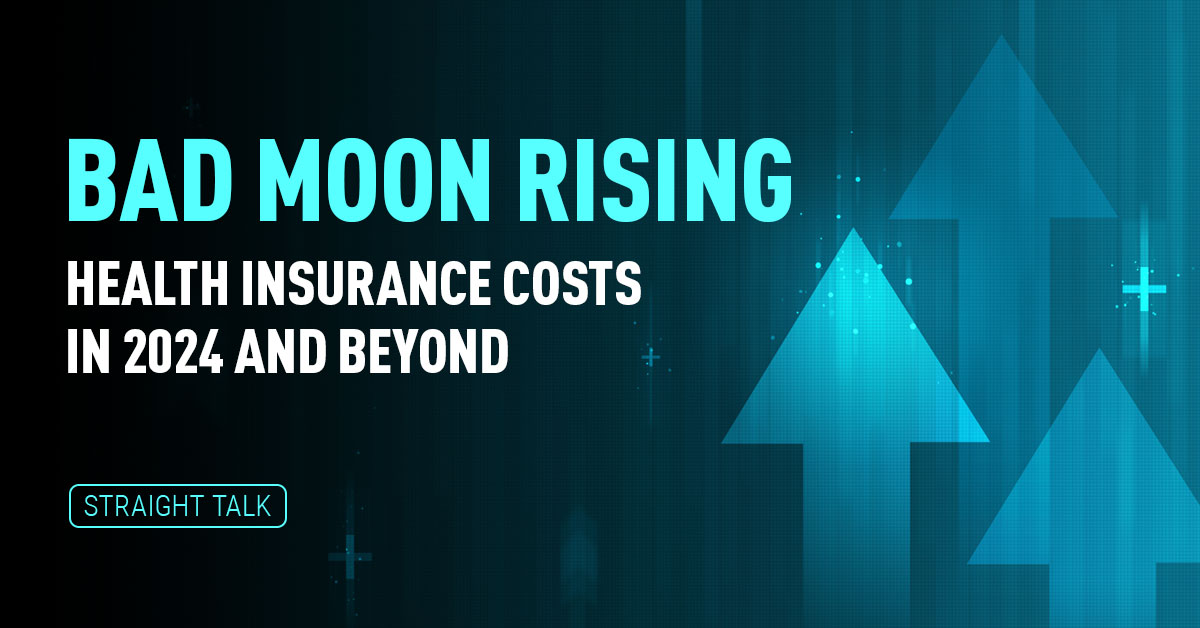There is a lot of doom and gloom out there right now about what is going to happen to the Affordable Care Act (ACA) under a Republican president with a Republican majority in Congress. So, what is really happening, and what can you expect?
Congress is Moving Forward
The House of Representatives and the Senate both approved budget bills on Thursday, Jan. 12 that create a template for pretty radical modifications to the health insurance marketplaces (healthcare.gov and state exchanges) created by the passage of the ACA back in 2010.
Even if the Republicans don’t actually have enough votes to repeal the ACA, much of the law runs on money, and the budget bills give them the power to make massive changes with simple majority votes. For example, the entire individual market essentially runs on federal dollars, and the ability to change where those dollars go gives Congress tons of power to amend and alter the current structure.
Let’s take a reality check on the people most likely to be affected by changes to the ACA.
“If this (employer) mandate goes away, larger companies will have the option of dropping coverage completely without any threat of financial repercussions from the government.”
Reality Check: If You Have Insurance through Your Employer
The incoming Trump administration and many Congressional leaders and business organizations have expressed a desire to do away with the employer mandate in the ACA, which is the requirement that businesses with 50 or more employees have to offer health insurance to them, and that the insurance has to cover specific things.”
If you get insurance through your employer – which most Americans do – the changes the ACA has required are pretty straightforward. Employers today have to meet more standards in terms of coverage and affordability than they did before the ACA. This may have driven up your premiums at work, but your coverage could also be better, with no annual or lifetime limits and lots of different immunizations, check-ups and counseling sessions covered without a deductible or copay. The ACA also required employers to provide free contraception to female employees.
The disruption of the employer mandate in the repeal process could lessen these requirements and give employer plans an out. Since more than 105 million Americans get their insurance coverage at work, these are the ACA changes most people would feel.
Some employers who have more than 50 full–time or equivalent employees didn’t offer health coverage at all pre-ACA. Today, if they fail to do so, they face fines. If this mandate goes away, larger companies will have the option of dropping coverage completely without any threat of financial repercussions from the government.
Also, ACA promises of non-discrimination in getting health insurance through work based on the class or salary of the employee were never finalized. This means employers will have more discretion to pick and choose which employees get coverage, which don’t and what type of coverage they get, much like they did before the ACA.
” So far, we don’t know what the replace part of the plan is, but we are confident most of the changes will not affect anyone in 2017. It’s really 2018 we are watching very closely.”
Employers themselves could get relief from reams of new federal rules and paperwork, some of which have been admittedly redundant.
Here at Straight Talk, we’ll be tracking changes to the employer mandate very carefully as they will impact a huge chunk of our members.
Reality Check: If You Have Insurance through the Individual Market
Most of the attention has been on the individual health insurance market, used by 9% of the population, which was completely disrupted and re-made by the ACA.
Today, anyone can buy coverage regardless of their health conditions and get significant help paying for it. If your income is between 100-400% of the Federal Poverty Level (around $11,800 to $46,000/year for a single person), you can get money up front to help pay your premiums. If your income is between 100 and 250% of the Federal Poverty Level ($11,800 to almost $30k/year for a single person), you can also get a lot of financial help paying your deductibles, copays and out-of-pocket costs.
All of this assistance could be disrupted by the Republicans amending the ACA. So far, we don’t know what the replace part of the plan is, but we are confident most of the changes will not affect anyone in 2017. It’s really 2018 we are watching very closely. Around 11 million people have individual health insurance through the new marketplaces and are getting financial assistance and another 10 million or so have individual coverage purchased outside the marketplaces with their own money.
Blue Cross is Watching Closely
We’ll be monitoring the individual health insurance market changes very closely as well. Very closely.
All told, it would be very difficult to change this law on the fly without causing major disruptions to the existing markets, which already have their problems. The Individual Market today especially is very unstable. Kick it too hard, and it may well collapse.
We have outlined on many occasions how to fix this market so that rates level off and stability and longevity set in, but have mostly been ignored by the outgoing administration when we’ve made our case to them. Here’s hoping the new group will be more receptive.
We’ve already started the process. We’ve briefed our Congressional leadership, and we think they understand the issues we and other insurers are facing.
Our CEO, Dr. Steve Udvarhelyi, told us, “We’ve had very constructive dialogue with our Congressional delegation here in Louisiana, including the newly elected members. I think they all understand the importance of these issues and the need to come up with a better, longer lasting solution.” He’s also talking to the public about these issues.
Our Blue Cross Blue Shield Association’s national lobbyists are doing everything in their power in Washington, D.C. to educate all of the decision-makers and their staffs as to the implications of any action they might take. They will help devise a plan to stabilize the individual marketplace and prevent its collapse as the changes are moving forward. At the top of the list is a lawsuit that could force even more expenses onto your health plan. See my conversation about Cost Sharing Reductions and the threat of losing them for more on why that’s important.
We are alert. We are vigilant. We are communicating. We are doing tons of research, exploring the implications of many options and sharing that information with the people who will ultimately decide the outcome of the ACA, right up to the staff of the incoming president of the United States.
You can know with confidence that your Blue Cross plan is doing everything in its power to bring stability and longevity to your rates and to these marketplaces. We will continue to tell the truth here and at the highest levels of power because you deserve nothing less. That’s our mission, and we will not stray from it.
Straight as can be from me to you. Here’s hoping the folks in charge are listening.





Leave a Reply